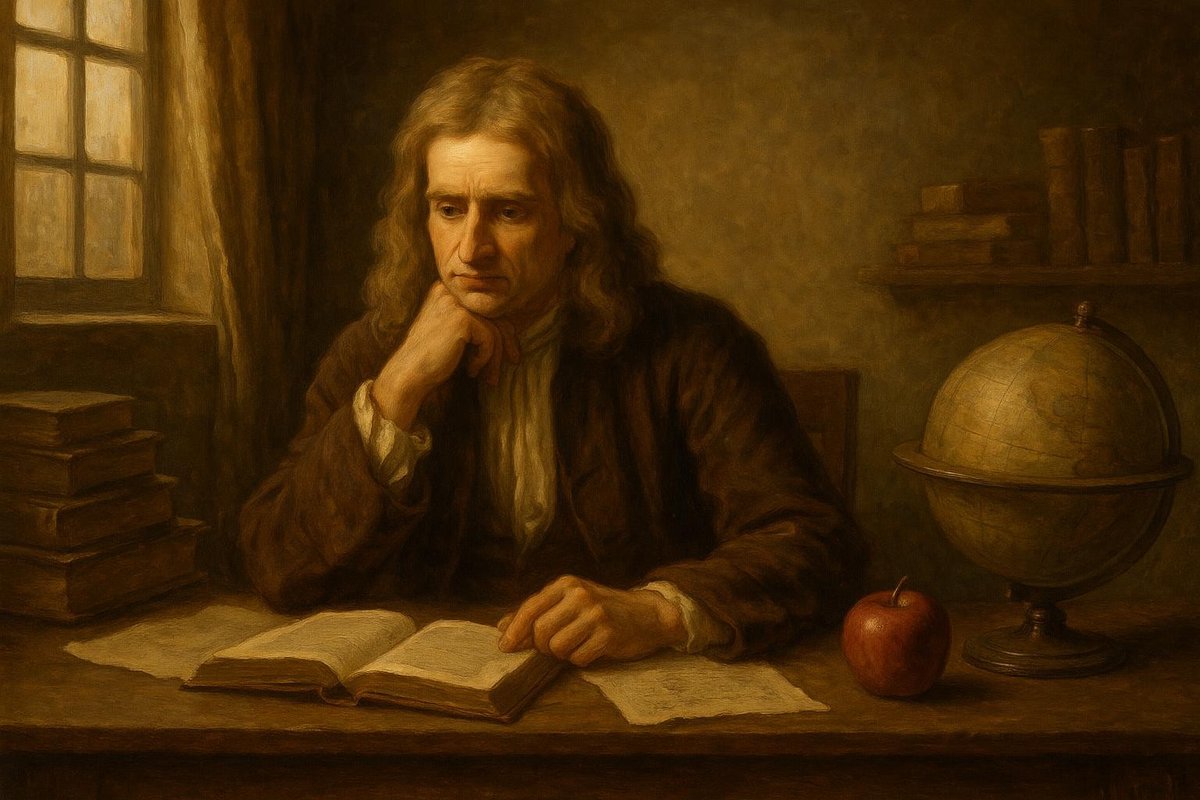
Isaac Newton, a name synonymous with genius, spent much of his life in solitude, pondering the mysteries of nature. It was through this introspective solitude that he was able to develop some of the most fundamental principles of physics and mathematics. How did a man, largely isolated from the bustling world around him, come to see so clearly the workings of the universe?
Early Influences
Born on a quiet Christmas day in 1642 in the sleepy village of Woolsthorpe, Lincolnshire, Newton’s early years were far from extraordinary. Yet, the seeds of his intellectual prowess were planted here.
- His mother’s remarriage left young Newton in the care of his grandmother, fostering an early independence.
- He developed a fascination with mechanics and observation, tinkering with sundials and windmills.
These early experiences were instrumental, setting the stage for his later breakthroughs. The rural landscape, devoid of distraction, became a canvas for his imagination. Newton’s ability to see beyond the obvious, to ask why and how, was nurtured by an environment that allowed exploration at his own pace.
Mental Models
Newton’s mind was a vast landscape, where ideas took root and flourished. He saw the world as a complex but decipherable machine. This mental model was key to his revolutionary insights.
- He envisioned the universe as a grand clock, with mathematics as its gears and laws.
- His invention of calculus came from this need to describe motion and change continuously.
He once famously said, “If I have seen further, it is by standing on the shoulders of giants.” Newton’s ability to build on existing knowledge allowed him to perceive the forces that others missed. This perspective enabled him to unify celestial and terrestrial phenomena under his laws of motion.
Challenges & Resilience
Even for a mind as brilliant as Newton’s, challenges were inevitable. His journey was fraught with resistance and skepticism, both internal and external.
- The Great Plague of 1665-1666 forced him to retreat to his family home, a period during which he made his most groundbreaking discoveries.
- His theories initially faced criticism and required relentless defense against detractors.
This resilience in the face of adversity was crucial. Newton’s ability to persevere, to continue questioning and refining, allowed him to overcome these hurdles. His solitude, though challenging, became his greatest ally, providing the space for uninterrupted contemplation.
Legacy
Newton’s legacy is not just in the equations and theories he left behind, but in the way he fundamentally changed our understanding of nature.
- His laws of motion and universal gravitation laid the groundwork for classical mechanics.
- He paved the way for future scientists, influencing figures like Albert Einstein.
Newton’s work transcended his own era, marking a turning point in scientific thought. His ability to see the unseen, to model reality with precision, remains a cornerstone of scientific inquiry. Newton’s legacy is a testament to the power of solitude and reflection in the pursuit of knowledge.
The impact of Newton’s solitary reflections is timeless. In a world of constant noise and distraction, his life reminds us of the profound insights that can arise from contemplative silence. His work continues to inspire those who dare to tread paths less traveled.
Fuel Someone Else’s Curiosity
Newton’s journey from solitude to universal insight is an invitation to explore the depths of your own curiosity. Share this story and ignite a passion for discovery in others. Who knows what profound truths lie waiting in the quiet corners of your mind?

Leave a Reply